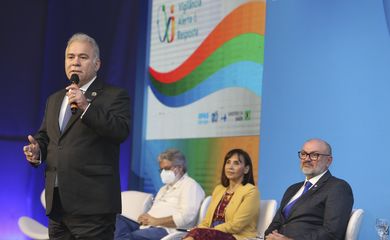First death linked to monkeypox confirmed in Brazil

Brazil’s Ministry of Health on Friday (Jul 29) confirmed the first death linked to monkeypox in the country. The authorities declared that the victim was a 41-year-old man already under treatment for other conditions, including cancer, which caused his health condition to deteriorate.

The man, whose name was not disclosed, is reported to have been admitted to a public hospital in Belo Horizonte, state capital of Minas Gerais, where he suffered a septic shock, aggravated by monkeypox. “The cause of death was septic shock,” the official note reads.
State health authorities reiterated that the patient, who lived in the capital, was already hospitalized due to “other serious medical conditions.”
Minas Gerais is reported to have 130 cases under investigation apart from those confirmed. On Thursday afternoon (28), confirmed cases of monkeypox in Brazil stood at 978.
Caused by the human monkeypox virus (hMPXV), the illness has been declared a public health emergency of international concern by the World Health Organization. The decision was based on the surge in the case tally across several countries, which increases the risk of international spread.
Experts classify it as a rare viral disease, transmitted by close contact with an infected person with skin lesions. The contact may take place through hugging, kissing, massaging, or sexual intercourse. The disease is also transmitted by respiratory secretions and contact with objects, fabric (clothes, bed linen, or towels), and surfaces touched by the sick person.
No specific treatment is available, but the clinical picture is usually mild, with lesions requiring care and observation. The greatest risk of a deterioration is reported to face immunosuppressed people with HIV/Aids, leukemia, lymphoma, metastasis, transplant recipients, people with autoimmune disorders, pregnant and nursing women, and children under eight years of age.




